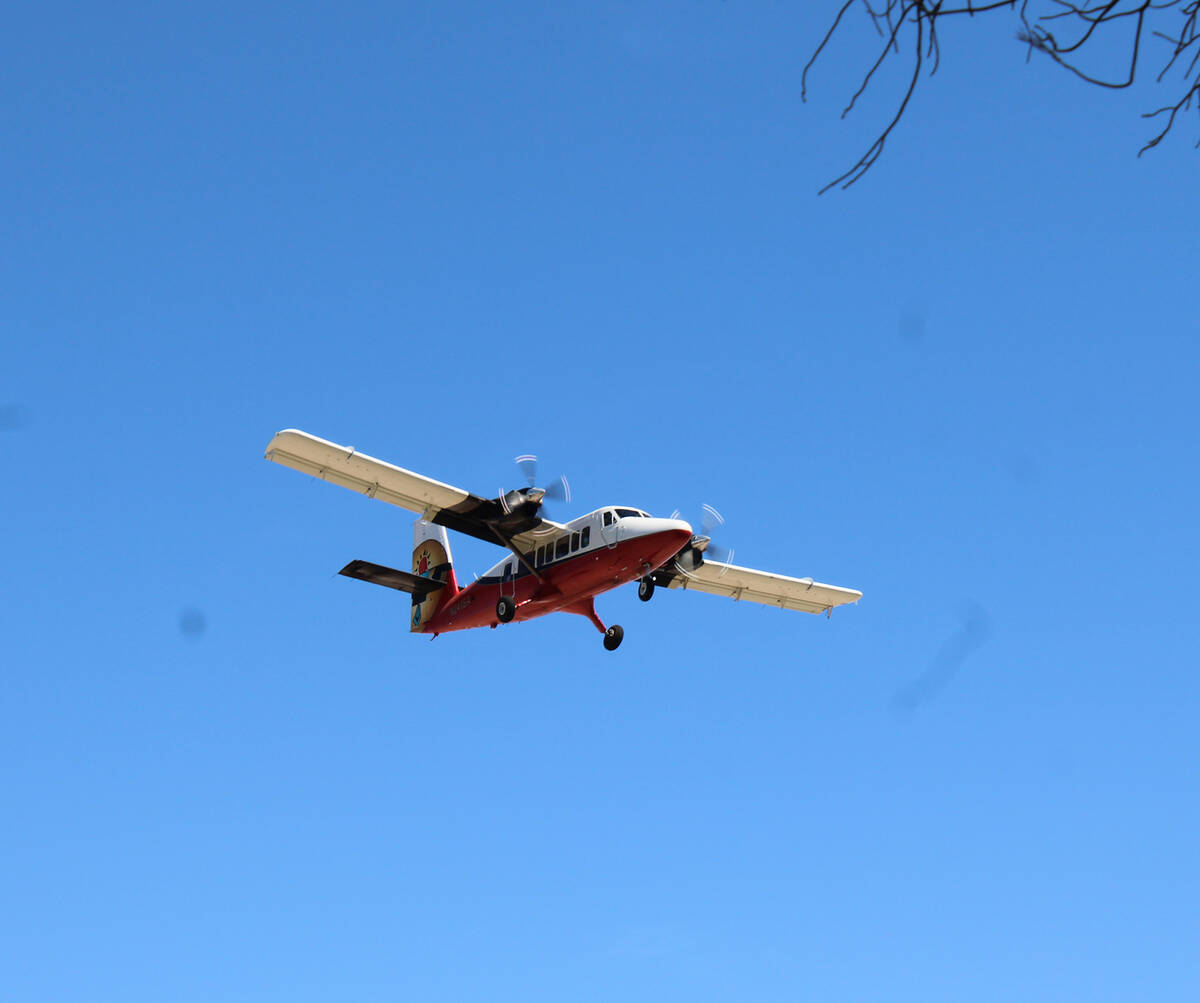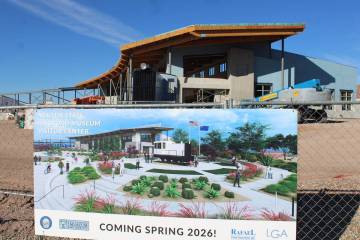A battle over airport business impact
Before the city council voted unanimously to accept a Business Impact Study regarding increasing some fees at the city-owned airport, the lone speaker in public comment — who chose not to identify himself but has spoken multiple times in the past year on issues surrounding the operation of the airport — had one thing on his mind. Fuel costs.
“There are concerns with the contract,” he said Tuesday night. “My main concern with the contract is that the city is getting out of the fueling business and into the extortion business. Which is extorting way too much money from operators at the airport when it comes to buying a gallon of gas.”
City Clerk Tami McKay interrupted and said, “The contract is not agendized.”
To review how public comment works, comment at the beginning of the meeting has to be about items on the agenda. There is a second public comment period at the end of the meeting that is open to any subject. And the city appears to be working to tighten up public comment in general. In the past few weeks they have returned to the pre-Covid practice of written comment not being read into the record in meetings and have shortened the maximum time for a comment from five minutes to three minutes.
“We’re talking about fees at the airport,” replied the unidentified commentor.
“They are fees related to special events,” interjected City Attorney Brittany Walker.
“Okay, at special events, we sell fuel,” replied the commentor.
“These are fees related to special events only,” said Walker.
“Okay, regarding fuel at special events, my concern is that none of the other cities charge the fees that Boulder City is trying to charge,” the speaker said. “It’s upward of 34 cents a gallon. Most other airports in the U.S. charge between six and eight cents. That is 10 cents a gallon that I pay to the city as an FBO (fixed base operator, these are independent businesses that operate out of the airport such as tour companies) and then another 24 cents a gallon that the fuel provider will pay the city, making the total 34 cents per gallon.”
He went on to point out that there is no real forum anymore for people interested in airport issues to have them discussed with city staff. The airport advisory committee has not met in more than two years and it is unclear who is even on it at this time. The commentor said that Acting City Manager Michael Mays told him there is an ad-hoc committee that meets as needed but no one knows when those meetings are or who is on the committee.
The actual item on the agenda was pretty limited. Whenever the city is going to pass pretty much anything that includes fees or fines they must, under state law, do something called a Business Impact Statement.
The process works like this: The city publishes a notice that a comment period is open. These kinds of governmental announcements are published in the Las Vegas Review-Journal, which was the case here. Then the city sends out notices to any businesses associated with or that they think might be affected by the proposed law which includes fees and/or fines. Then they create the statement, which is a legal document that includes any received comments. And only after all that happens, can the city council vote on legislation that would involve fees or fines.
In this case, according to Airport Manager Marissa Adou, the airport sent out notices to all businesses based at the airport as well as any business that had done business at the airport in the past year.
Seven comments were received. Most of them were obviously part of a campaign as they were virtually identical to one another. All seven strongly opposed the exacting of additional fees during special events. One of those came from Brandon Murray, who wrote:
“Regarding the proposed airport fee changes: Airports and runways in the United States are essential components of our public transportation infrastructure, funded through federal taxpayer dollars, much like our road systems. I strongly oppose the proposed Special Event Fees. Implementing such fees would be akin to allowing the city of North Las Vegas to turn I-15 into a toll road during major events at the speedway.
“If a private business or fixed base operator (FBO) wishes to profit from the increased traffic during these events, they are free to charge for ground services as the market allows. However, charging a fee simply for landing during these times constitutes an abuse of the airport’s purpose.”
Murray and several others went on to note that a group of airport users is currently working with the FAA to address these fees.
Note that during recent large-scale events such as the Super Bowl and F1, landing fees at airports in the Las Vegas Valley increased sharply but those fees did not change in Boulder City. Adou referenced both of those events as examples in her comments to the council.
Mayor Joe Hardy tried to get Adou to address the mystery commentor about the proposal to charge fuel users 34 cents per gallon and was shot down by Walker. Acting City Manager Micheal Mays interjected that the council would not even be deliberating the actual fees at this meeting.
“This is only for the council to accept the business impact statement,” Mays said. “We’ll be coming back before you at the next meeting with these fees for consideration.”
Councilmember Sherri Jorgensen asked where the money collected would go and Adou replied that any fees would go to maintenance and upkeep of the airport.
Walker jumped in once again with a reminder that the actual fees and their ultimate use were not on the agenda.
















